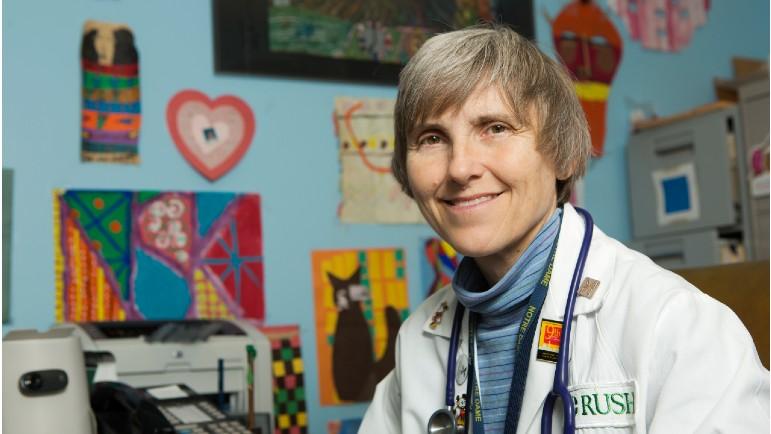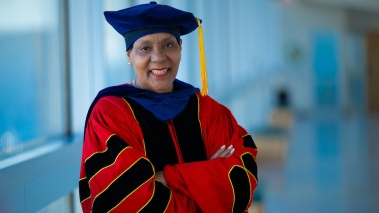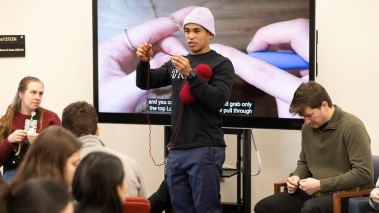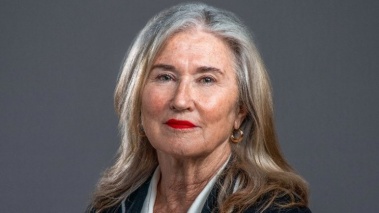RUSH has received a $5 million gift from the Foundation for Angelman Syndrome Therapeutics to establish a center for new clinical trial and translational research efforts for rare neurodevelopmental disorders.
The RUSH F.A.S.T. Center for Translational Research will be the global headquarters for training young investigators how to run clinical trials for neurogenetic disorders and deliver innovative interventional therapies that require unique delivery methods and specialized care.
The center, which will be directed by Elizabeth Berry-Kravis, MD, PhD, a professor of pediatrics, neurological sciences and anatomy and cell biology, will have the first organized training program for faculty focusing on clinical trial execution and novel drug delivery for rare neurogenetic disorders, such as Angelman syndrome.
“There are few centers around the country that study or treat rare neurological disorders,” said Berry-Kravis, who has been leading clinical trials for over 20 years. “The goal would be to help centers with the increasing need for early-stage clinical trials for children with these disorders by bringing educational training programs to support these goals.”
Many of the doctors working on neurogenetic disorders are running excellent general and specialized care clinics for specific subsets of disorders but are not trained in the intricacies of setting up, running, and reporting on clinical trials, which means the absence of specific training to expeditiously execute trials is significantly limiting trial enrollment capabilities.
By establishing a formal fellowship program for both national and international candidates, physicians will be trained in understanding all aspects of the clinical trial process, such as:
- Steps it takes to onboard a prospective clinical trial.
- Regulatory hurdles required to get through contracts and ethics approvals.
- Challenges in setting up infrastructure for patient testing.
- Requirements for putting together the specialized clinical teams needed for these trials (e.g. anesthesia, trial coordinators, trained neuropsychologists, neurologists/epileptologists, neurosurgeons, and any other specialists relevant to a specific trial.
This F.A.S.T. trials center will put all these pieces under one roof as a model of how to most efficiently and effectively execute a clinical trial — enabling Berry-Kravis to formally share her expertise with others, and to help to grow the capabilities at dozens of additional centers globally. When F.A.S.T. fellows complete their training, they will be able to bring this expertise to other institutions around the world. To support this, F.A.S.T. is committing to financially support the upgrading of current clinical trial centers and establishing new programs, to ensure the capabilities of numerous centers can meet the huge demand.
F.A.S.T. fellows will have hands-on training and be integrated into the center for a full year, focusing entirely on running clinical trials for rare neurodevelopmental disorders. In addition to the fellows, the RUSH F.A.S.T. Center also will train externs in shorter stints to learn about drug delivery, advance their own skill sets, and train in efficiencies to bring back to their own institutions to better deliver interventional therapeutics to more patients in the safest and most efficient ways.
"We are on the cusp of so many vital breakthroughs, which is why it is timely to offer this program at such a critical time," Berry-Kravis said. "This is going to help so many people, and I am looking forward to working with the brightest minds in the field to generate the medical breakthroughs of tomorrow."






